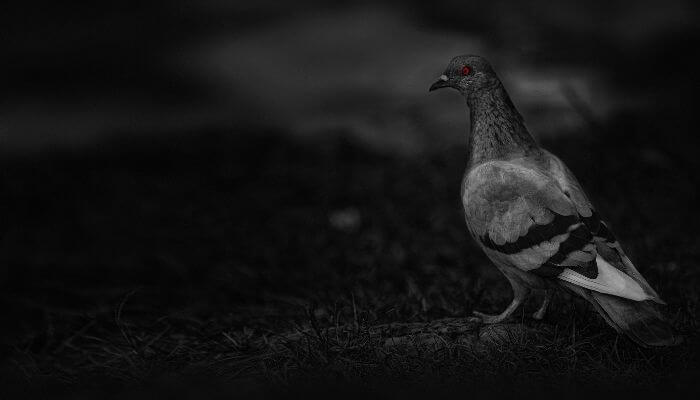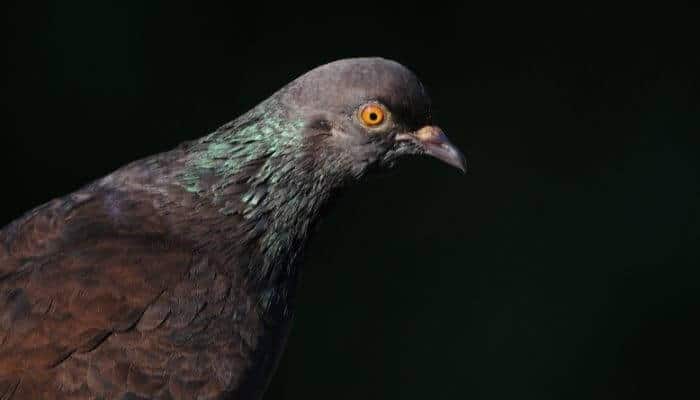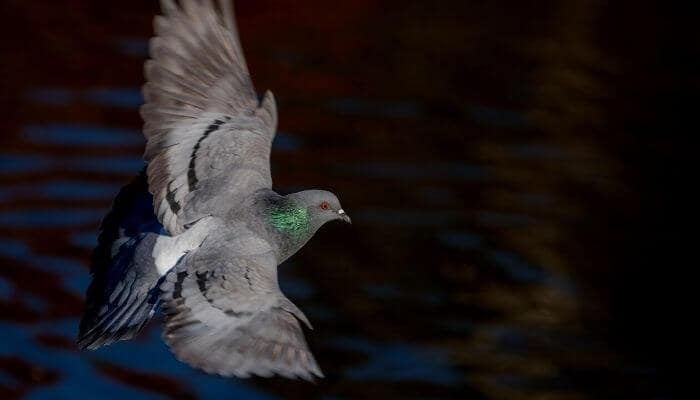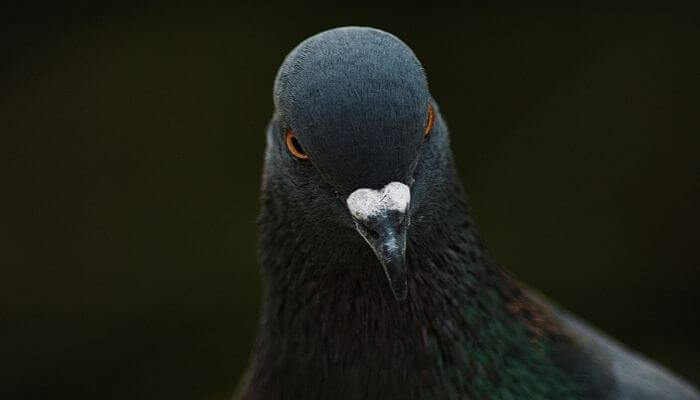Pigeons can see in the dark but their night vision is not acute as during the daytime and they don’t see objects well.

A pigeon’s vision is designed to help them survive in the wild and their eyes are sensitive enough to detect the slightest changes in the environment.
They certainly see better in the dark than humans.
Pigeons have many attributes that make them fascinating to study and have turned them into one of the most successful bird species on the planet.
Their great intelligence and curiosity have helped them become top survivalists.
Much has been written about their amazing navigational abilities, their tenacity or their beauty, but little is known outside of the scientific community about their night sight abilities.
Most people think that they are all grounded at night, but that isn’t quite true.
Pigeons Are ‘Diurnal’ Birds
We think of owls and other birds of prey as having great night vision because they fly and hunt by night, but not pigeons because they are considered diurnal birds that sleep during the night.
They do sleep at night, but pigeons have a special ability to remain alert and survey their surroundings while supposedly asleep.

You’ve all heard the expression to ‘sleep with one eye open’ and this is what pigeons can do.
This is a peculiar type of split-brain function that pigeons and some other animals possess.
So, it goes without saying that if one eye is open then they can see in the dark.
Without that ability, this behaviour would be useless.
Racing Pigeons Fly During The Night
Many racing pigeons fly over great distances in their competitions.
Pigeon races of hundreds of miles, even up to a thousand are normal.
Even with their flight velocity, many pigeons wouldn’t be able to traverse this sort of distance only during the daytime hours.

Once in the air and racing, pigeons may rest, but it is doubtful that they would sleep until dawn if night overtakes them.
Homing pigeons will continue to their destination under whatever conditions, even nightfall.
This is especially true when pigeons fly over water.
Pigeons aren’t seabirds, so they don’t land on water to rest.
Pigeons that have been trained as messenger birds also don’t let darkness deter them.
Pigeon’s Night Vision
Pigeons have excellent eyesight.
In the avian world, night hunting birds have binocular vision, whereas pigeons have monocular vision. Their eyes are set at the sides of their heads.
This gives them an almost all-around view.
Anyone who has ever tried to creep up on one will know that is just about impossible.
Viewing vertically, pigeons can see in a 135-degree arc.
Horizontally, it is a 340-degree arc.

This is many times better than human vision.
Their eyes are quite large in comparison with their body size.
Pigeons have greater depth perception than humans.
Although they are much better at perceiving rapidly moving objects, stationary objects at distance aren’t so easy for them.
Human eyes function the other way.
The habitual head-bobbing behaviour of pigeons is, in fact, them refocusing their eyes.
They have what is called ciliary muscles in their eyes that can change the shape of their lens.
These help them to refocus their eyes for clear sight over various distances.
They can also see a greater spectrum of colours than humans can.
Whereas humans can see three channels of colours, pigeons can perceive five.
This is called pentachromatic vision.
Pigeons eyes are super sensitive to light and can even see ultraviolet light, although like humans, cannot detect infrared light.
Pigeons can fly at night by using just the light of the moon or from human habitations because of the light sensitivity of their eyes.
In Conclusion
All the mentioned vision attributes enable pigeons to have great night vision.
Although good day vision is essential to pigeons’ flight, it is also an essential tool for survival during the nighttime hours too.
